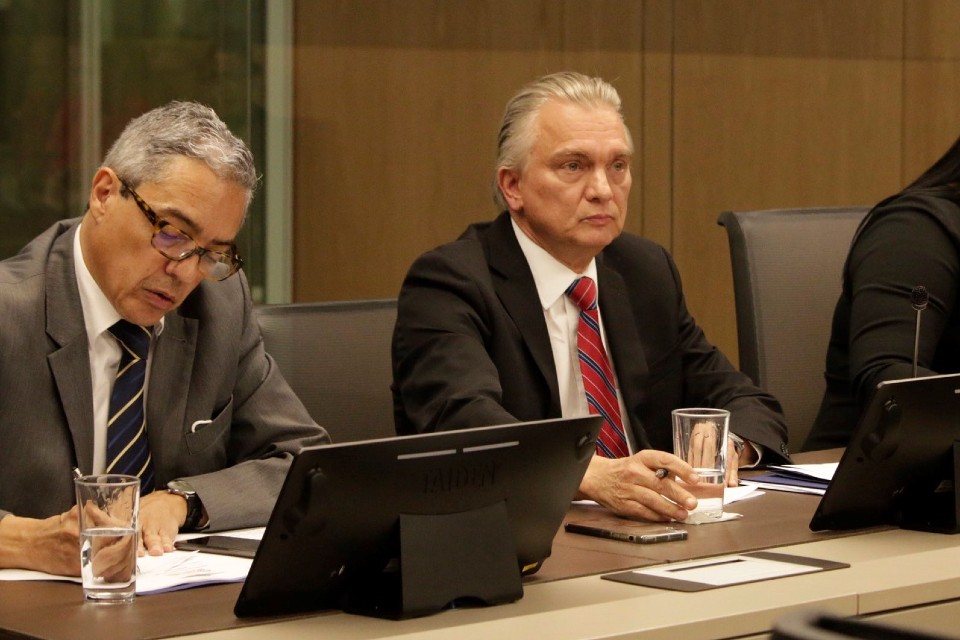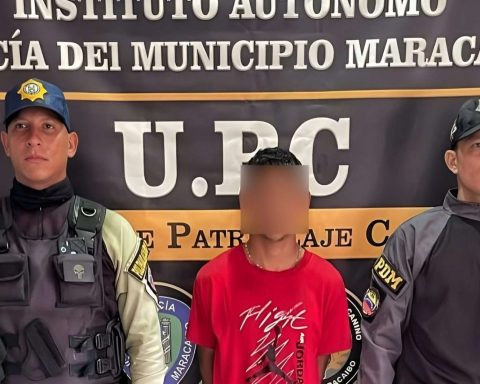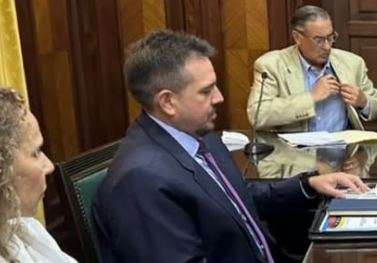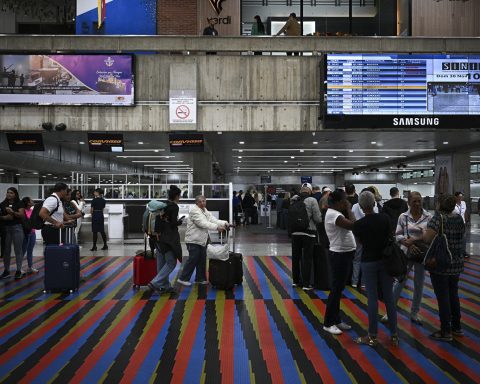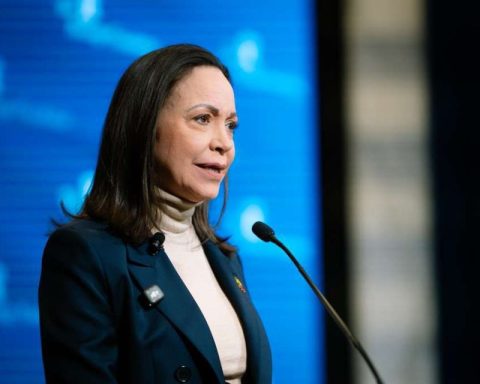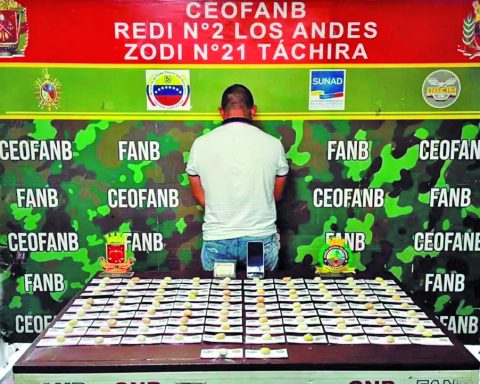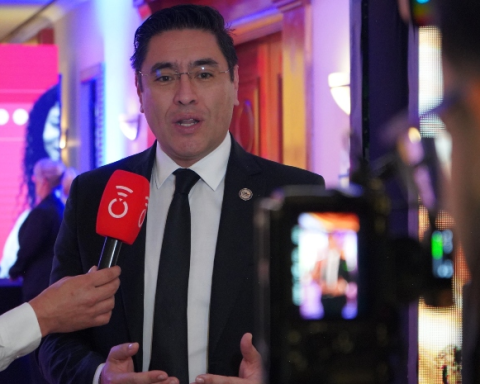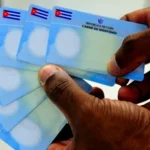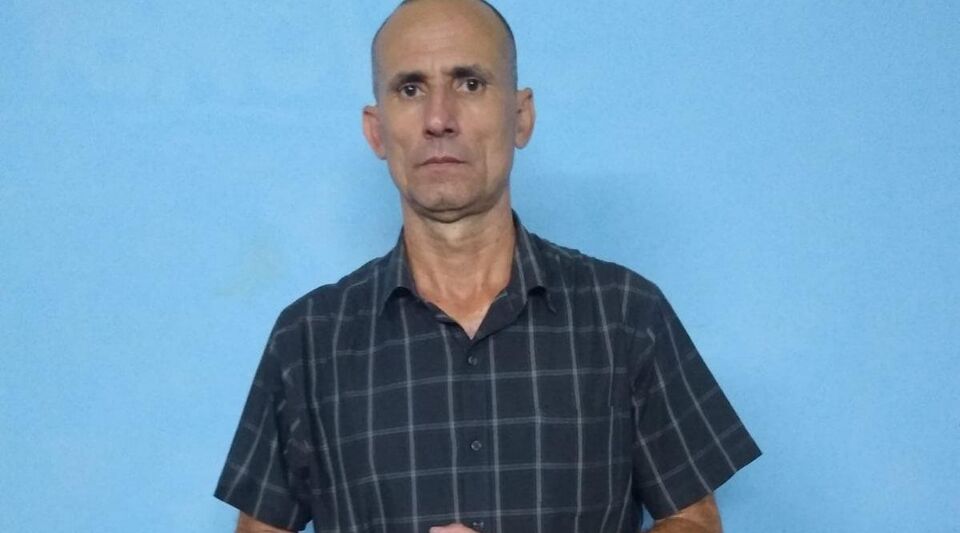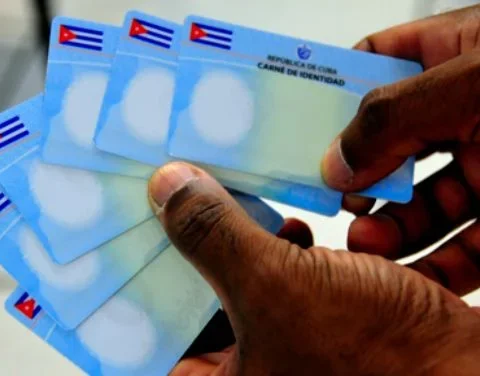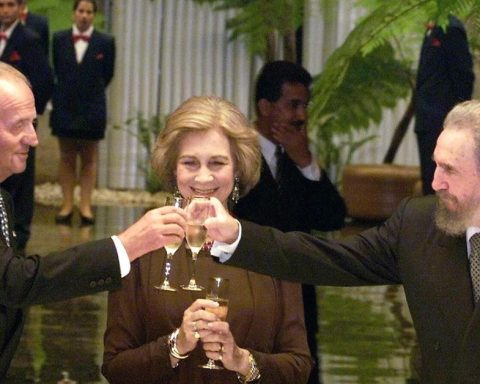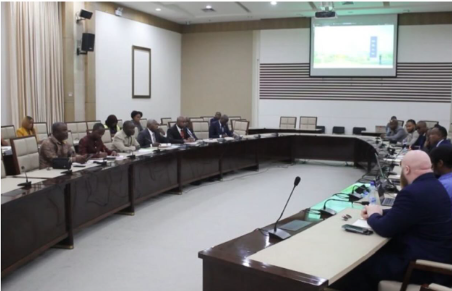In an exclusive interview, Costa Rica’s Foreign Minister, Arnoldo André Tinoco, pointed out that his country is at the limit of migrant capacity and shared details about the processing centers for migrants that his country operates together with the US, Canada and Spain.
Text: Yeny Garcia / Belen Mora
Costa Rica, one of the countries most affected by the migration crisis facing the Americas, has been overwhelmed by the arrival of migrants, a flow that does not stop growing and whose solution must be “a joint responsibility” of the continent.
“The income of migrants per capita exceeds (…) the limits of reasonableness” that the small Central American nation has to face this phenomenon alone, stated in an exclusive interview with the Voice of America the Costa Rican Foreign Minister Arnoldo André Tinoco, who advocated a management sharing of mobility processes in the region.
Tinoco arrived in Washington to participate in the 53rd General Assembly of the Organization of American States (OAS) and spoke with VOA about the new processing centers for migrants that his country operates in coordination with international organizations and receiving nations such as the United States, Canada and Spain.
The Foreign Minister also referred to the challenges presented by the assimilation of hundreds of thousands of asylum seekers, and the efforts his country is making to guarantee the rights of migrants who pass through its territory in search of the “American dream”. .
Voice of America: Minister Arnoldo André Tinoco, thank you very much for your time and for this interview for the Voice of America. We want to start this interview by talking precisely about the safe mobility offices that have already started operating in various countries. How did the decision to set up these centers in Costa Rica come about?
Chancellor Arnoldo André Tinoco: Good morning, nice to be with you. The immigration issue is an important issue for Costa Rica, it is part of our foreign policy programs. It is a very relevant issue from the political, economic and demographic point of view. And within this issue, within the Los Angeles Migration Declaration and within the conversations with the United States Government, is that the idea of these mobility or pre-registration offices is developed to determine if some groups of populations migrants qualify or not within the immigration programs, not only from the United States, but also, for example, from Spain and eventually Canada.
The idea is that the interested party provides their personal information and that of their family nucleus so that the experts who care for them determine if they qualify for any of the immigration programs of these countries that I have mentioned: the United States, Canada or Spain, to then provide them with a immigration by air to that country of destination, if qualified.
*Read also: Panama will relocate Venezuelans stranded in a shelter near Costa Rica
WOW: How are these offices going to work and what capacity do they have for handling and processing applications?
Chancellor: In our case, in Costa Rica, we have determined that we would locate the office in the north of the country, towards the border with Nicaragua, but the physical location is not so important because much of the process will be virtual or via computer through a website. special. It will be the international managers or officials of the UNHCR, the United Nations High Commissioner for Refugees and the IOM, the International Organization for Migration, who will attend this process.
WOW: Who can go to these mobility offices and what is the waiting time for processing the cases?
Chancellor: In the case of Costa Rica, for the initial experimental pilot plan we have defined two populations: Nicaraguans and Venezuelans, who as of June 12 would have already been found in Costa Rica. It is necessary as a condition that they have already been in the country, so that the program is directed to those who are already in Costa Rica and the processing time is planned so that the application is resolved in a few weeks.
There will be a virtual pre-application and those who qualify will be invited to a personal interview and then it will be resolved in a few weeks.
*Read also: The double flight: the migration of a Cuban-Venezuelan woman to Puerto Rico
WOW: What would be the programs to which these migrants can benefit from the installation of these offices?
Chancellor: That depends on the recipient countries. The United States has its programs, Canada has its own, and Spain has its own. They can be labor migrations, of qualified or semi-skilled people for family reunification or for other reasons, but the programs designed for this type of migrant will depend on each receiving State.
WOW: You mention that basically the installation of these offices occurs within the framework of an agreement with the United States and in an agreement with these countries, which will be the recipients of many of these migrants. In what way do you think the installation of these offices will benefit all the politics and the work that they are doing in Costa Rica to meet the needs of this large number of migrants who arrive in your country?
Chancellor: It is a program based on people. Costa Rica actually wins and loses, but it is a respect for the will of migrants who want to continue their march to destinations other than Costa Rica.
We have practically 20% of our population, a million people are not born in Costa Rica, in the sense that they are immigrants in some way. Between 500,000 and 750,000 must be Nicaraguans and the others of other nationalities, those who come to Costa Rica from the north, but we also have migrants passing through that Panama gives us at our southern border and who we accompany to our border with Nicaragua and continue his step.
They do not qualify for this specific program. Because, as I was saying, it will apply only to those who have already entered the country.
*Read also: Illegal migration to the US continues despite offices to regulate it
WOW: Recently, the United Nations High Commissioner for Refugees, Filippo Grandi, mentioned that it is precisely the majority of those who are forced to go to neighboring countries in some way. This is somewhat the case in Costa Rica. Now, what is your government’s call to developed economies to attend to this large number of refugees in the region?
Chancellor: Costa Rica’s call is for greater international cooperation, greater support and international financial assistance. The problem of migration will never stop, it is not a problem, it is a challenge for societies. Since before Christ there have been global migrations of peoples. Now we are experiencing migrations from south to north and from east to west.
However, the causes are foreign to Costa Rica. Costa Rica is not the origin of the reasons why people migrate, but we are a receiving country and a country of transit. In this condition, it seems to us that it is fair and equitable that the cost of care for these populations be shared responsibly by all countries. The solution to better order the processes to prevent women alone with their families and children from crossing the Darién Gap, between Colombia and Panama, to continue their march north is a shared responsibility of the countries and the solution to the best administration of these flows of people to respect their rights, is joint.
To read the full interview, click here.
Post Views: 17
